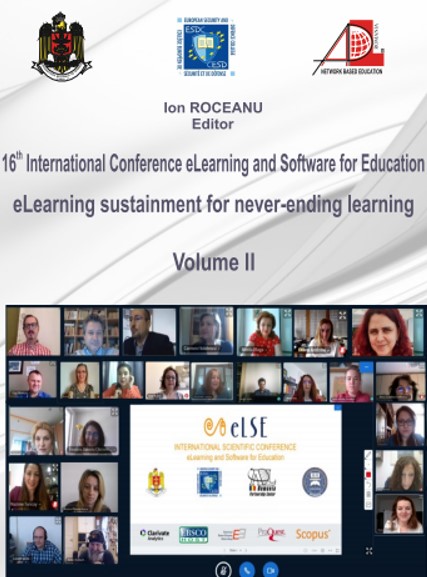ORIENTED FOREIGN LANGUAGE E-COURSES: ELABORATION AND ASSESSMENT (BASED ON EXTENDED PROJECT EXPERIENCE)
ORIENTED FOREIGN LANGUAGE E-COURSES: ELABORATION AND ASSESSMENT (BASED ON EXTENDED PROJECT EXPERIENCE)
Author(s): Angelina I. Dubskikh, Anna V. Butova, Yulia Savinova, Oksana LukinaSubject(s): Foreign languages learning, Language acquisition, ICT Information and Communications Technologies, Distance learning / e-learning
Published by: Carol I National Defence University Publishing House
Keywords: higher educational school; professionally oriented foreign language e-courses; ICT; Moodle platform; subcourse;
Summary/Abstract: In the modern world the role and the quality of the international communication has changed greatly. In the past decades globalization of economy, science and development of communicative technologies resulted in expansion of international connections and engaging a great number of scientists, teachers, students and staff of national and international companies into international communication. The professional activity of all these people is impossible without foreign language proficiency. Thus, communication in foreign languages is becoming a key component of future professional activity. In this regard, the role of the discipline “Foreign Language” in non-linguistic higher educational institutions has been significantly increased. A professionally-oriented approach to teaching a foreign language in technical universities is becoming especially relevant nowadays. This approach includes building students’ foreign language capacity in specific professional, business and scientific situations, taking into account the peculiarities of professional thinking. The professionally oriented education involves mastering professionally-oriented foreign language as well as developing personal traits of learners, their knowledge of the culture of the English speaking countries, and acquiring special skills, based on professional and linguistic knowledge. The use of new information technologies in teaching is one of the most important aspects of improvement and optimization of the educational process, upgrading of teaching tools and methods, which will allow to vary methods of work and make the learning process more interesting and exciting for students. The goal of the research is to examine new ways of using ICT in the process of elaboration of a new course “Professionally-Oriented Foreign Language” by the lecturers of NMSTU. The authors emphasize that ICT serve not only as a means to deliver materials, but as a means of control as well. They provide a high quality of the material presentation and use various communicative channels (textual, sensory, graphic, sound, etc). New technologies enable us to individualize and intensify the learning process, overcome the psychological barrier of a learner, who is not able to use the language as a means of communication. One more positive aspect of using ICT in the educational process is its ability to make the process of learner’s assessment more objective (tasks with pre-set criteria of assessment help to avoid subjectivity of assessment).
Journal: Conference proceedings of »eLearning and Software for Education« (eLSE)
- Issue Year: 16/2020
- Issue No: 02
- Page Range: 349-355
- Page Count: 7
- Language: English

